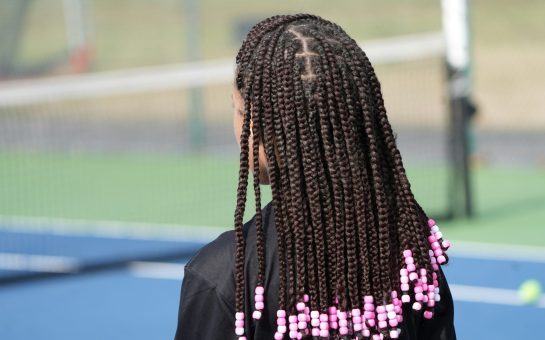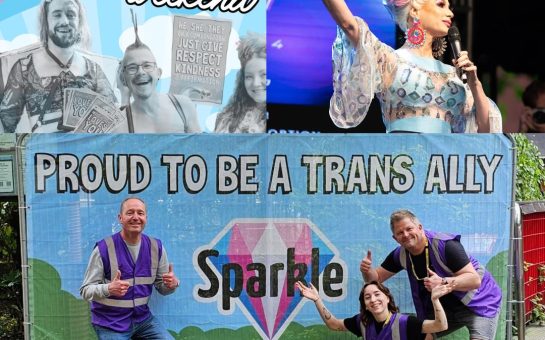The recent trial of a woman, who used a male persona online to trick her female friend into having sex with her using a fake penis, raised many questions.
Gayle Newland, a 25-year-old creative writing student, seduced her victim online using a fake Facebook profile under the name of Kye Fortune.
The pair got to know each other over the internet eventually leading to a relationship which lasted two years.
However ‘Kye’ demanded the woman wear a blindfold whenever she was with ‘him’ as ‘he’ claimed to be so self-conscious after undergoing serious medical treatment.
Newland, who has identified as a lesbian since primary school, used a prosthetic penis to have sex with her victim on roughly ten occassions.
The victim only discovered ‘Kye’s’ true identity when she ripped off the blindfol and saw Newland wearing the prosthetic.
Newland has now been found guilty on three counts of sexual assault by penetration and her sentencing will take place in November.
In a time when online dating is more popular than it ever has been, this case is an upsetting example of the personas people can create for themselves and how easy it is to lie over the internet.
Warnings of the importance of meeting anyone you engage with online as soon as possible and in busy, public places during the day were once so prevalent.
But as internet dating has become normalised with the release of app upon app and the launch of new websites for different niches we seem to be ignoring those warnings.
So why do we trust people we meet online?
MM spoke to Manchester’s Sam Owen, relationships coach and psychologist, to discuss the issue and explore the dangers.
Recent research suggests that online dating works for exactly that, dating, but meeting in person is more likely to work out for those hoping to find ‘the one’.
Despite evidence online romances are most likely to be short-lived people are becoming more lax when it comes to personal safety with increasing numbers of us being ‘catfished’.
The fact that a definition for catfish – to lure someone into a relationship by adopting a fictional persona online – has found its way into the Oxford dictionary speaks volumes.
Sam says that we can often miss blatant warning signs online that we would usually spot in person.
“We don’t truly know someone who we’ve met online,” she said.
“We attempt to fill in the blanks by creating a fantasy about someone, which often turns out to be untrue.
“A big reason why some people ignore safety precautions is because they are desperate to see out this fantasy.”
Sam explained that getting to know someone in person is vital to the success of using online dating sites.
“Instinctively we are wired to know more much than verbal communication tells us,” she said.
“More than half of human communication is non-verbal and we know a lot about each other through body language.
“You can learn more about a person in one or two dates than you might in one or two months of chatting online or over the phone.
“People who spend a lot of time on sites can end up disheartened when they invest emotionally over the internet.
“The important message is to get the relationship offline as quickly as possible.
“Online dating is used best when it’s a matchmaking service; it’s good with a certain strategy.”
Research carried out by online dating site eHarmony expects those aged 55-64 to experience an online dating boom, with an expected 30 per cent rise by 2030 to 2.41million.
Sam says she has noticed the trend and explains that older people still experience concerns when using online to meet other singletons.
“One thing that is increasingly prevalent is clients who are 40 or older turning to online dating,” she said.
“But they often seem to think there is still a taboo associated with it.
“People can start to panic as they get older if they find their friends and families are in relationships.
“Not having a wingman or wingwoman to go out on the dating scene with can be intimidating so online dating can make the process easier.
“Professionals can be concerned about the privacy of having online profiles so it’s important that people are properly educated.”
The Newland trial demonstrated how building relationships online can lead to deception.
Newland was able to dupe a woman into a sexual relationship, in part because the victim was ‘very gullable’ and ‘naive’.
But also due to the hours dedicated to seducing her and luring her into a false sense of security online, beyond the scrutiny of a face-to-face encounter.
Sam offered her ultimate advice to the Manchester’s online daters.
“It’s the same world out there and however comfortable we get with being online people have got to have common sense,” she said.
“Meet up in a public place, check-in with a friend or family member, make sure you leave separately and inform someone when you’re home.”
Sam is a relationships coach and psychologist who helps clients globally. Get more free tips on Twitter and her website.


